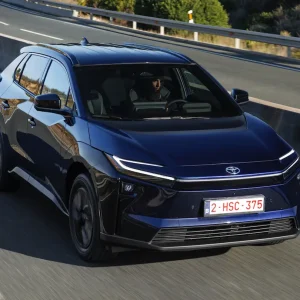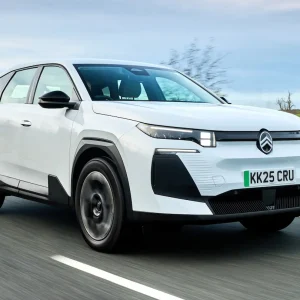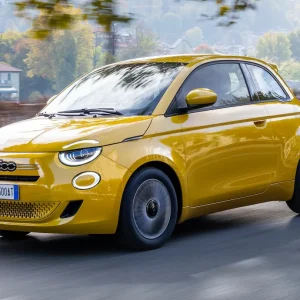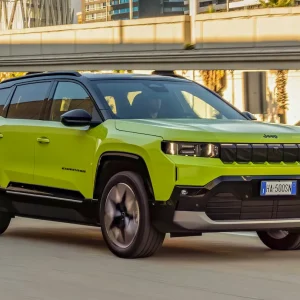The Transit Custom was an instant hit when it was launched in 2013 – so much so that sister title What Van? crowned it the Van of the Year in both 2013 and 2014, making it the first model ever to win the prize two years running.
So when Ford pledged to improve an already outstanding package with new engines in advance of the Euro6 emissions regulation (requiring a 55% reduction in NOx), that comes into force in September, BusinessCar was eager to put the brand’s promise to the test.
Here we’re driving the new 130hp 2.0-litre Ford Ecoblue powertrain in an L1H1 (short-wheelbase, low roof) Custom. This engine replaces the 125hp 2.2-litre TDCi unit and, as well as offering 5% more horsepower, it also provides maximum torque of 385Nm at 1500-2000rpm – an increase of 35Nm over the outgoing engine.
This model has a gross vehicle weight of 2740kg, an increase of 40kg to compensate for the addition of the 21-litre AdBlue tank needed to meet the Euro6 standard without compromising payload.
The 130hp Custom L1H1 has an official fuel consumption of 49.6mpg and emits 161g/km of CO2. Ford claims the Euro6 2.0-litre engine is 13% more efficient than its 2.2-litre predecessor. By comparison, the Euro6 SWB VW Transporter 102hp 2.0 claims consumption of 47.9mpg and CO2 of 153g/km.
All Custom variants are front-wheel drive with a six-speed manual gearbox for the time being, a six-speed automatic is expected to be added to the range towards the end of the year.
Transit product manager Dave Petts predicts the 130hp-powered derivative will take about 50% of Custom sales due to it offering the most popular combination of performance, economy and price. He says the 130hp engine adds about £1100 to the van’s price compared with the 125hp unit it replaces, while there is an uplift of £950 on the 105hp engine next to the old 100hp 2.2-litre powerplant.
Following its launch in 2012, the Custom was praised for its good looks, and Ford has not messed with its appearance, the only exterior visual difference is the addition of a thin chrome strip beneath the
front grille.
The class-leading interior, which is based on the passenger car line-up, also remains intact, although the
3.5-inch screen on the dashboard has now stretched to four inches. Unlike in its bigger Transit brother, touchscreen controls are not yet available, but will come with future updates, promises Petts.
The new engine is a revelation in improving the performance of a van that was already very impressive on the road, with slick gear changes and precise steering contributing to exemplary handling. The biggest change is in the extra helping of torque on tap low down in the rev range – up to 20% more, according to Ford. This results in a more flexible and responsive drive, particularly in busy traffic, making it far easier to overtake slow-moving vehicles.
Finally, the van we drove was loaded to half its 874kg payload capacity (the Euro6 Volkswagen Transporter offers 886kg), which hardly caused the 130hp engine to break sweat but may have contributed to the pleasantly smooth and even ride quality.
Ford Transit Custom |
| Model price range £19,245-£27,895 |
| Warranty 3yrs/100,000mls |
| Service intervals 37,000mls |
| Load bay length 2555mm |
| Load bay width 1775/1390mm |
| Gross payload 874kg |
| Load bay volume 6.0m3 |
| Engine size/power 1996cc/130hp |
| Fuel consumption 49.6mpg |
| CO2 161g/km |





